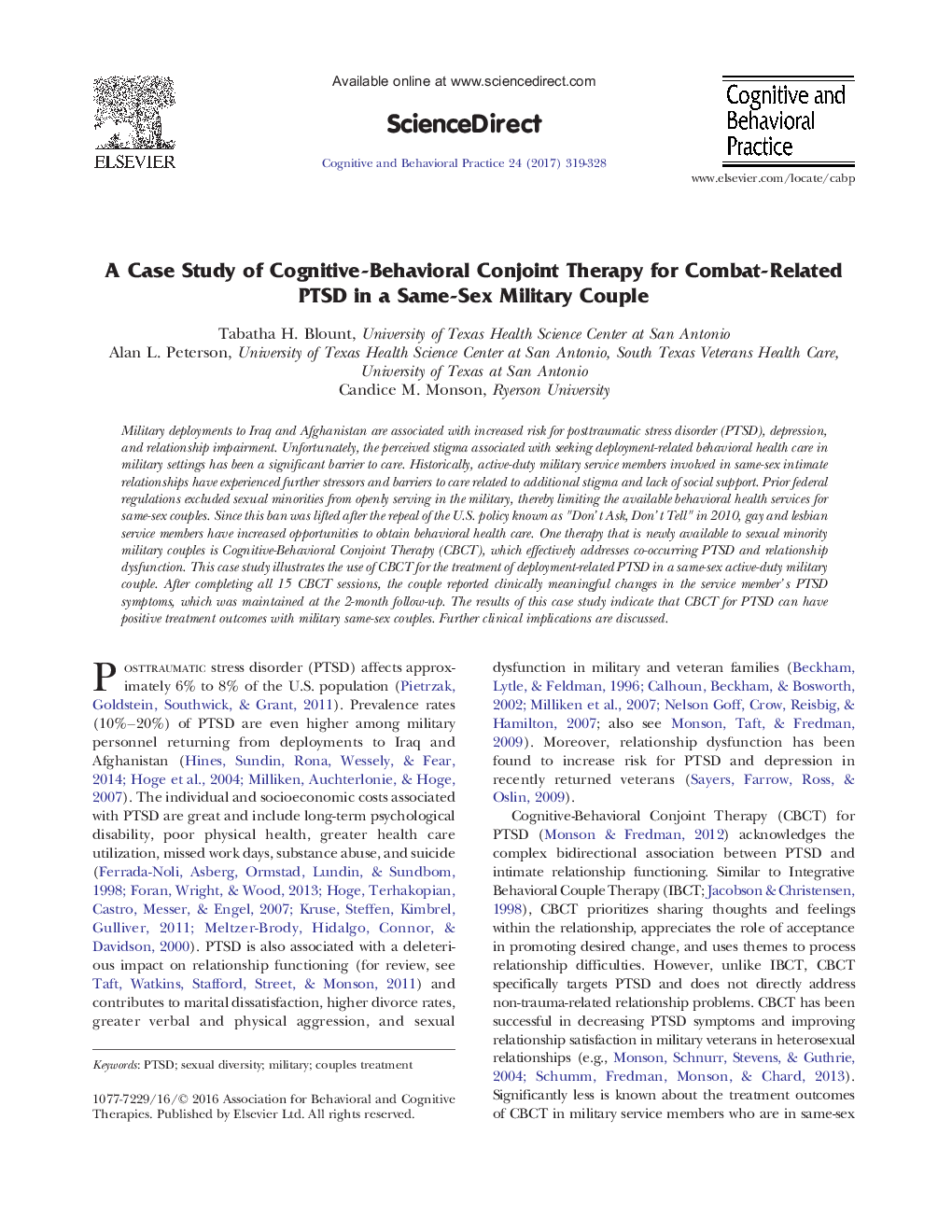| کد مقاله | کد نشریه | سال انتشار | مقاله انگلیسی | نسخه تمام متن |
|---|---|---|---|---|
| 5038571 | 1370277 | 2017 | 10 صفحه PDF | دانلود رایگان |

- We highlight the need for PTSD treatments in sexual minority service members.
- We discuss barriers to behavioral health care for sexually diverse service members.
- We illustrate the use of CBCT for combat-related PTSD in same-sex military couples.
- We demonstrate that CBCT for PTSD is associated with positive treatment outcomes.
Military deployments to Iraq and Afghanistan are associated with increased risk for posttraumatic stress disorder (PTSD), depression, and relationship impairment. Unfortunately, the perceived stigma associated with seeking deployment-related behavioral health care in military settings has been a significant barrier to care. Historically, active-duty military service members involved in same-sex intimate relationships have experienced further stressors and barriers to care related to additional stigma and lack of social support. Prior federal regulations excluded sexual minorities from openly serving in the military, thereby limiting the available behavioral health services for same-sex couples. Since this ban was lifted after the repeal of the U.S. policy known as "Don't Ask, Don't Tell" in 2010, gay and lesbian service members have increased opportunities to obtain behavioral health care. One therapy that is newly available to sexual minority military couples is Cognitive-Behavioral Conjoint Therapy (CBCT), which effectively addresses co-occurring PTSD and relationship dysfunction. This case study illustrates the use of CBCT for the treatment of deployment-related PTSD in a same-sex active-duty military couple. After completing all 15 CBCT sessions, the couple reported clinically meaningful changes in the service member's PTSD symptoms, which was maintained at the 2-month follow-up. The results of this case study indicate that CBCT for PTSD can have positive treatment outcomes with military same-sex couples. Further clinical implications are discussed.
Journal: Cognitive and Behavioral Practice - Volume 24, Issue 3, August 2017, Pages 319-328